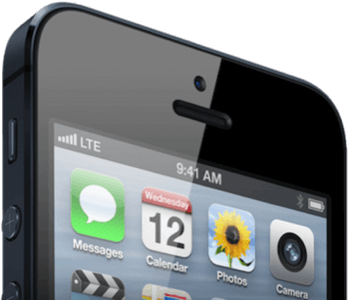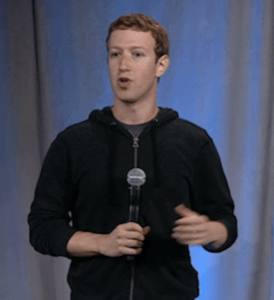
Facebook did not just launch a “Facebook Phone” last week, as was expected. Instead, along with the HTC First, it offered up Home, a “family of apps” that is neither a phone nor a smartphone operating system – but which may ultimately have a far greater impact on the mobile industry than either one of those things.
Facebook Home overlays a visually appealing “Cover Feed” onto the Android smartphone home screen. The Facebook member’s Newsfeed, pictures, texts, select notifications and “Chat Heads” of their friends are all displayed. If the Facebook Home user is inside another app – any other app – and receives a Facebook Message from a friend, for example, a “Chat Head” – the friend’s face and message – pops up on the phone screen. While not a true operating system, Home becomes the de facto user experience.
Though Home will be available only on select Android models when it debuts on Friday, April 12, it has the long-term potential to shake up everything from Google’s Android and Apple’s iPhone to mobile carriers and handset makers. Especially when you consider that Facebook has more than 1 billion members, and is on more than 600 million mobile devices – including approximately 200 million Android smartphones and 150 million iPhones.
First, let’s look at the losers.
Loser: Apple

For all the talk of how Facebook Home could potentially disintermediate Google from its own Android operating system, Home’s clearest threat may be to Apple’s lucrative iPhone business. Indeed, during the Facebook Home launch, Facebook CEO Mark Zuckerberg mocked Apple’s “there’s an app for that” user interface: “We’re not building a phone, and we’re not building an OS — we’re building an experience that’s deeper than any other app.” If Facebook Home succeeds, expect iPhone sales to be harmed. The iPhone’s operating system may begin to look dated, and customers may seek out those devices that offer Home – and for the foreseeable future, that means Android-only.
Loser: Mobile Carriers
Facebook is already promoting Home’s robust texting features, and Facebook Home is obviously a legitimate threat to the carrier’s lucrative SMS (texting) business. According to the Wall Street Journal, for years carriers have relied on SMS for “the bulk of their revenue” but “the rise of texting apps has taken away $23 billion in revenue from carriers as of the end of 2012.”
Facebook Home takes direct aim at the carriers’ SMS revenues. ReadWrite’s Nick Statt considers Home’s “Chat Heads” feature to be an “SMS killer.“
“Chat Heads give Facebook a subtle way to nudge users away from (carrier) SMS and towards its own platform,” Statt wrote, “This move finally establishes Facebook Message as a serious player in the field of SMS-killers, and the most disruptive one to date. Its success, or failure, will likely reverberate throughout the mobile world.”
Loser: Handset Makers
Apple and Samsung take the lion’s share of the smartphone handset market’s profits – by far. All other smartphone handset makers are struggling to stand out, much less eke out a profit. If customers are happy with any Android device that runs Facebook Home, handset makers will no doubt have an even harder time differentiating themselves. If customers gravitate to the lowest priced devices – as long as they run Home – handset makers may find it impossible to make any money.
Loser: Google
At least publicly, Google has welcomed Facebook Home to its Android platform:

The Android platform has spurred the development of hundreds of different types of devices. This latest device demonstrates the openness and flexibility that has made Android so popular.
But Facebook Home is also a big challenge to Android’s business model. Android’s primary revenue generating services, including Search, Maps, Gmail and YouTube, are typically pre-loaded onto sanctioned Android devices. The more Android devices, the more people access Google services, the more revenues Google generates.
Should Facebook Home effectively replace or block access to Google services, the Google Android strategy could take a massive hit.
Industry analyst and venture capitalist Jean-Louis Gassee, put it this way:
Facebook’s new Home on Android smartphone is an audacious attempt to demote the OS to a utility role, to keep to itself user data Android was supposed to feed into Google’s advertising business. Google’s reaction will be worth watching.
Loser: App Developers
Facebook formally describes Home as “a completely new experience that lets you see the world through people, not apps.” Beyond the promotional language, Home poses a threat to Android app developers, as it essentially hides all other apps beneath the Facebook Home screen. In the world of Facebook Home, apps are relegated to second-tier status. (And should a Facebook Home user call up their apps, they are listed in alphabetical order, not by user preference.)
According to the latest Canalys app store research, apps generate more than $2 billion every quarter, and 51% of all apps downloaded last quarter were on Google Play. This means that Facebook Home could have a massive impact on these app developers, in particular.
Sore Loser: Microsoft
The day after Facebook announced Home, Frank X. Shaw, Microsoft’s Corporate Vice President of Corporate Communications, mocked Facebook for essentially copying Microsoft’s Windows Phone look and “people first” design ethos. “While we applaud Facebook for working to give some Android owners a taste of what a ‘people-centric’ phone can be like, we’d humbly like to suggest that you get the real thing, and simply upgrade to a Windows Phone.” Corporate snark aside, if Windows Phone was selling in adequate numbers, than no doubt Facebook – which Microsoft has invested in – would have seen fit to devote resources and mindshare to the platform.
But Facebook Home isn’t all bad news, of course. There are plenty of winners, too:
Winner: HTC
The first device to come with Facebook Home pre-installed is from HTC – the HTC First. Once one of the larger players in the Android market, HTC has fallen on hard times. It’s close relationship with Facebook and first-mover status on Home could help the struggling device maker. Certainly, it can’t hurt.
(See also “HTC’s Financial Woes Put Pressure on Microsoft & Facebook.”)
Winner: Google
Yes, Facebook Home threatens Google. But it also offers opportunity. Because Home is Android only, at least for the foreseeable future, there is a real possibility that Home will spur Android sales.
At Home’s launch, Mark Zuckerberg stated: “I actually think this is really good for Android.” Zuckerberg noted that despite Android’s larger market share, app developers typically flock to Apple’s iOS first. He claimed that Home could spur “more innovation” to flow to the Android ecosystem, enticing app makers to do their best work there. It’s hard to see why those app makers would want their wares buried under Facebook Home, but who knows?

Winner: Facebook
Facebook has no “phone” and no smartphone operating system. It’s revenues from mobile devices remain meager compared to Google and Apple. Home could help change all that. Home proves that Facebook hasn’t just embraced “mobile first,” but as Zuckerberg put it at the launch event, “Mobile Best… We think this is the best version of Facebook there is.” Unlike earlier versions of Facebook for mobile, Home is appealing and accessible. Facebook is clearly the biggest winner from Facebook Home.
Image of Facebook Home courtesy of Facebook.

















